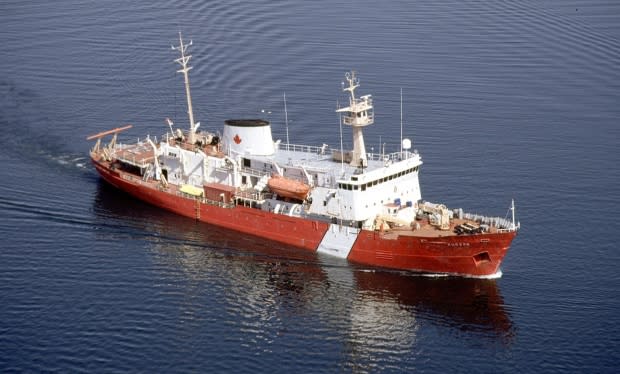Ocean water too warm to cool Canadian science ship's engines
Offshore Nova Scotia surface ocean temperatures were so warm earlier this month they forced a Canadian research ship that uses seawater to cool its engines to slow down.
The Canadian Coast Guard Ship Hudson was carrying out its annual fall ocean conditions survey in September and October and sailing through water measuring 20 to 24 C.
That is five or six degrees above normal, said research scientist Dave Hebert who was on board.
Warm enough the chief engineer took notice.
"The temperatures were pretty warm so it was harder for them to cool the engines down. They didn't run it with all the engines running because the engine was getting too hot. And they just couldn't do it," said Hebert.

The four engine Hudson slowed from 14 to 10 knots, he said and ran on two of its four engines until it encountered cooler water closer to shore.
It had no impact on the mission, but it got Dave Hebert's attention, who has served on many Hudson cruises as part of the Department of Fisheries and Oceans Atlantic Zone Monitoring Program.
"We've really never had this issue before but the ship has operated in warmer water. So they [the crew] are used to that sort of thing, but it was new to me to hear that," he said.
Heat wave hang over
Hebert said the warm surface temperatures are no mystery. They were a hangover from the heat wave that struck Atlantic Canada in the summer of 2018 and an absence of storms.
On board the Hudson the fall trip itself was conducted in tee shirt and shorts weather on flat seas. In deeper water scientists recorded cooler temperatures justly slightly above the thirty year average.
Hebert said the most recent readings show the surface temperatures are returning to normal at around 14 C.

